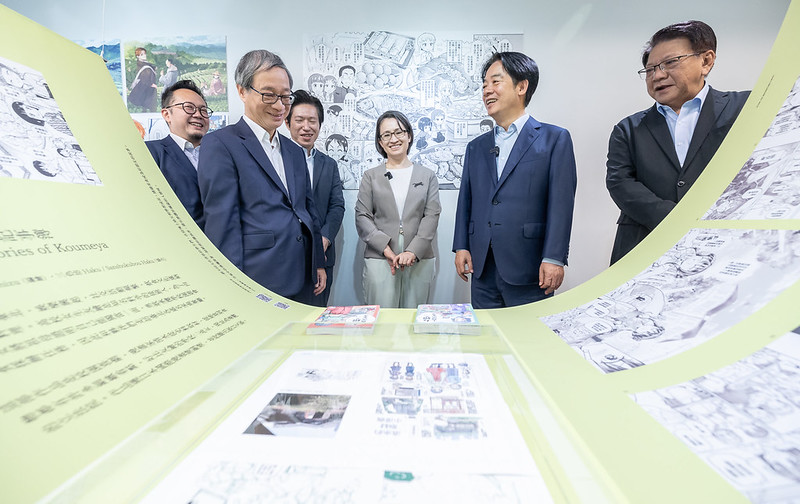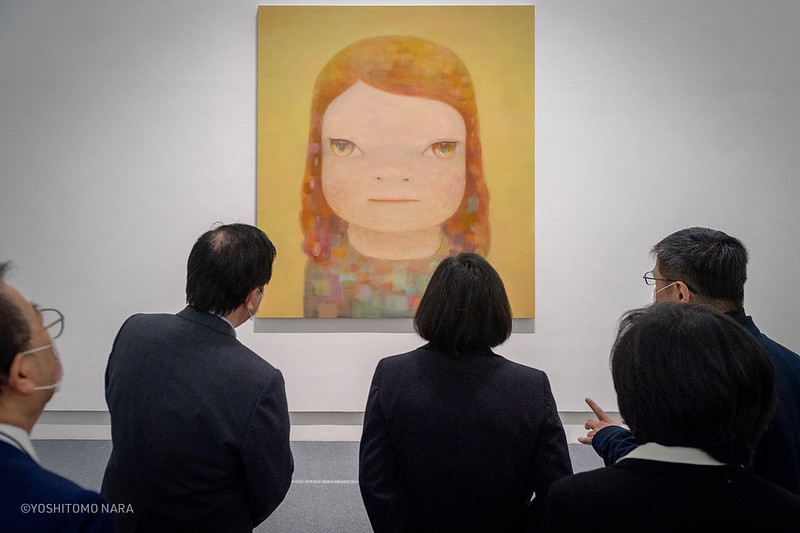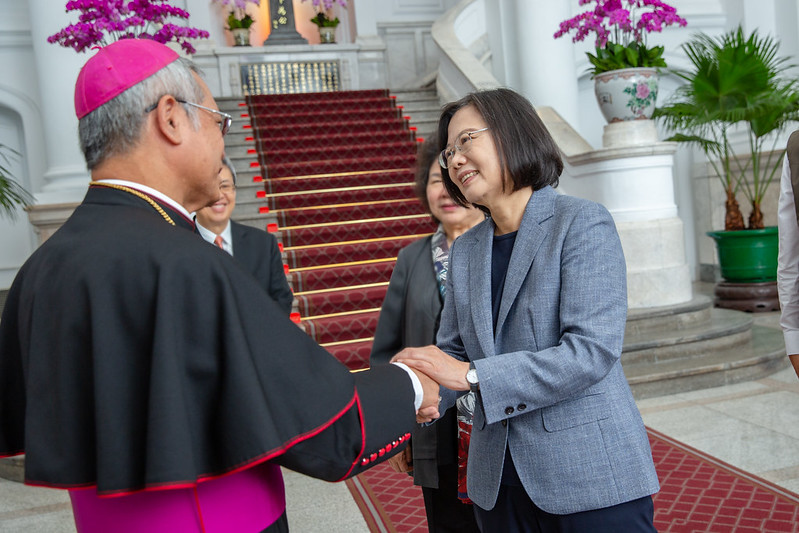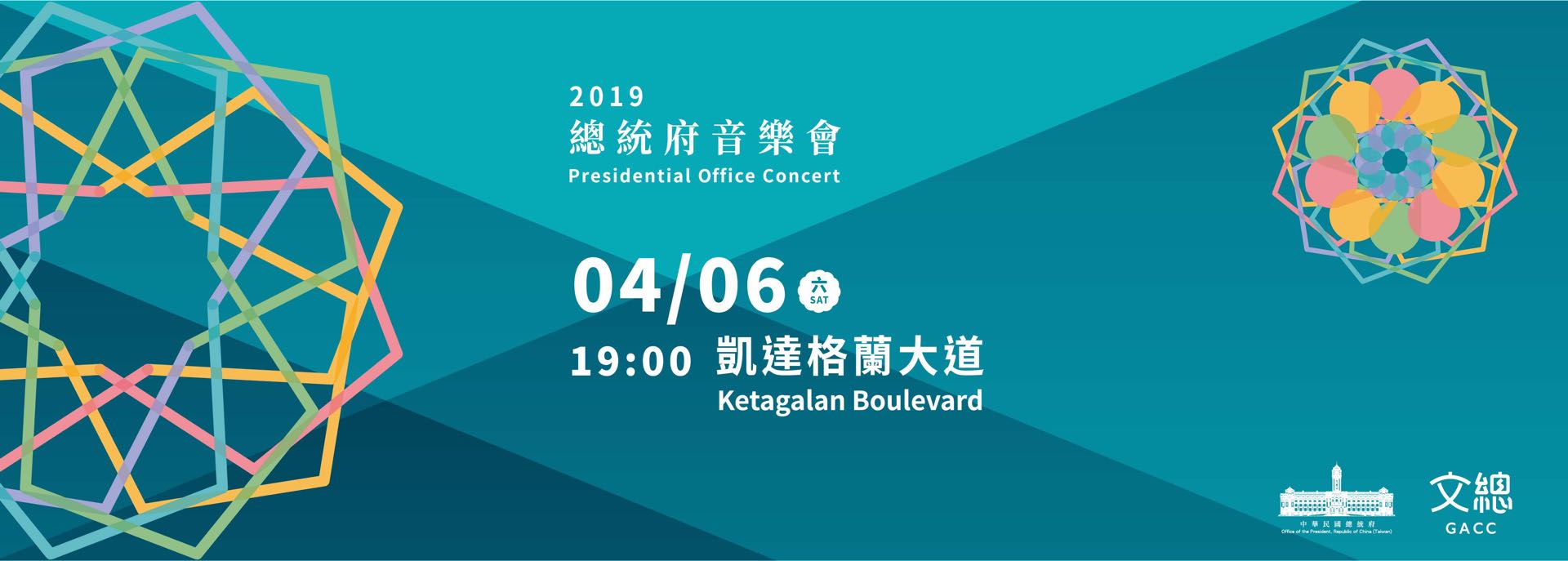News & activities
 News releases
News releases
The Office of the President held a press conference on March 6 to announce that the 2019 Presidential Office Concert will be held on April 6 (Saturday) outside the Presidential Office Building on Ketagalan Boulevard, the first time this event will be free and open to the public.
Director-General Chang Wen-lan (張文蘭) of the Department of Public Affairs said that the Presidential Office revived the concert in 2016 after a five-year hiatus in response to calls from the arts community. In addition to highlighting the importance of equal access to music, the event also aims to provide both outstanding musicians from Taiwan with domestic and international exposure. When the 2016 concert was held in the Reception Hall of the Presidential Office Building, many visually impaired musicians were invited to enjoy performances and perform, and were well received.
The 2017 Presidential Office Concert, Reflections from the Far South, was held in Pingtung County, said Director-General Chang. Featuring a special focus on local elements and multi-ethnic concepts, the 2017 event achieved a marvelous musical fusion of Hakka, Hokkien, and indigenous elements, highlighting the exuberance of southern Taiwan. The 2018 Presidential Office Concert, Scenes from My Town, in Changhua County combined New Poetry, indie bands, and performances by inmate musicians, and once again received rave reviews.
Director-General Chang noted that this year marks the 100th anniversary of the Presidential Office Building, and expressed hope that holding the Presidential Office Concert just outside on Ketagalan Boulevard will give more people a chance to enjoy this cross-generational musical feast.
Director-General Chang stated that ever since the Presidential Office Concert was revived, the event has focused on the three core themes—art, cultural diversity and public benefit, while inviting members of underprivileged groups to participate each year. This year, with help from the Taipei City Government, the concert will once again feature performances by residents of various social service institutions as well as special education teachers and students. Aside from seating reserved for specially invited guests, the rest of the venue will be open to one and all, and the Presidential Office welcomes the public to come and partake in this much-anticipated musical feast.
The director-general also mentioned that this year's concert is being organized by the General Association of Chinese Culture (GACC), which has assisted with previous Presidential Office Concerts. GACC Deputy Secretary-General Lee Hou-ching (李厚慶) commented that his organization has long provided a platform for music to evoke shared memories. For the 2019 Presidential Office Concert, he said, the GACC has retained Chien Wen-pin (簡文彬), Executive and Artistic Director of the National Kaohsiung Center for the Arts, to serve as artistic director, while Ding Dulan (丁度嵐), who heads the Taipei Music Center, will be the producer.
This year's concert will feature a rare blend of tradition with modernity, as well as classical with pop. Guided by the "Shared Memories and The People's Presidential Office" concept, the program will combine the "beauty of the place, the people, and the heart." During the two-hour concert, the director-general said, we hope to call up collective memories from the past as we embrace the coming century.
GACC Deputy Secretary-General Lee stated that April 6 falls in the middle of spring break and will coincide with the 2019 South Taipei Fun Carnival, which will take place at numerous venues near the Presidential Office Building, so the public is also encouraged to enjoy the Carnival, which will include street markets, theatrical performances, and exhibits.
Deputy Secretary-General Lee mentioned that every historical period has its own stories, so the GACC hopes to use the 2019 Presidential Office Concert to create shared memories that will resonate with everyone. In addition to music, this year's Presidential Office Concert will also feature more visual creativity, which everyone should look forward to.
The deputy secretary-general then said that the key visual design for the 2019 Presidential Office Concert came from the hand of Fei Gongxin (費工信), well-known for his skilled use of lines and colors. Inspired by musical notation, Fei will employ circular shapes to represent overall harmony among different communities, with a wide array of colors symbolizing how wonderful it is to grow up in Taiwan, our homeland.
Director-General Chang closed by saying that the 2019 Presidential Office Concert is going to be a spectacular event, and that the GACC will make periodic announcements regarding the program. This event will be open to the general public, she added, so everyone is welcome to come together with friends and family on Ketagalan Boulevard to enjoy the music.









